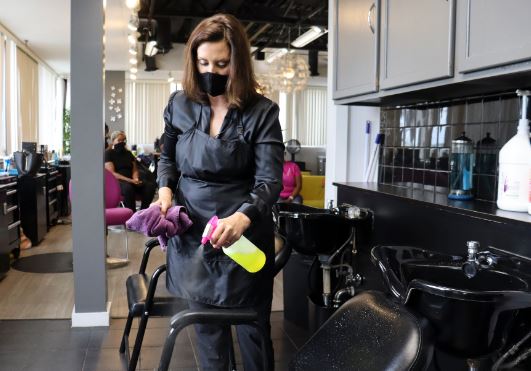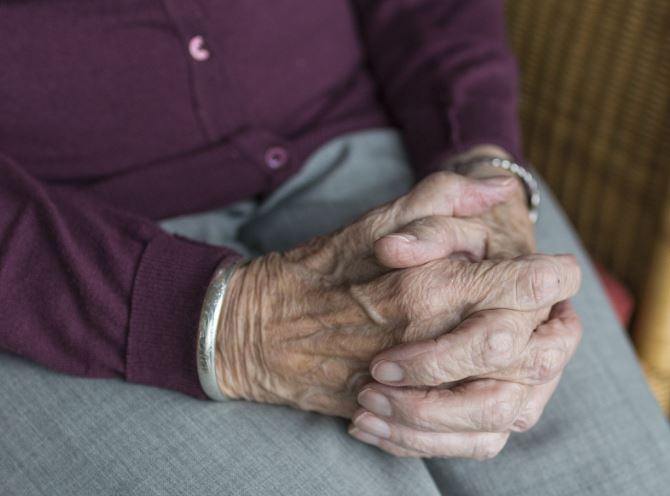FOR IMMEDIATE RELEASE
June 26, 2020
Media Contact: [email protected]
Governor Whitmer Creates Bipartisan Task Force, Takes Action to Protect Nursing Home Residents and Staff from COVID-19
LANSING, Mich. — Today, Governor Gretchen Whitmer signed executive orders to protect Michigan Nursing Home residents and staff from the spread of COVID-19. Executive Order 2020-135 creates the bipartisan Michigan Nursing Homes COVID-19 Preparedness Task Force within the Michigan Department of Health and Human Services (DHHS). The governor also signed Executive Order 2020-136, which extends existing safety measures to maintain restrictions regarding entry to care facilities designed to protect vulnerable populations. Since it was first issued on March 14, this order has prohibited entry into a nursing home without undergoing a rigorous screening protocol designed to protect facilities from COVID-19.
“We have taken great strides here in Michigan to protect families from the spread of COVID-19 and lower the chance of a second wave, but it’s crucial that we stay vigilant and work around the clock to protect our most vulnerable residents and those who have dedicated their lives to caring for them,” said Governor Whitmer. “These actions will help our state protect more nursing home residents and staff in the case of a second wave. Moving forward, I will work closely with the task force and with everyone who wants to help us protect our most vulnerable communities, the heroes on the front lines, and our families from this virus.”
The Michigan Nursing Homes COVID-19 Preparedness Task Force will be charged with, among other things, analyzing relevant data on the threat of COVID-19 in nursing homes, and making recommendations to the governor on improving data quality, and releasing periodic reports to the governor on its findings and recommendations. The task force must produce a recommendation to the governor for an action plan on how to prepare nursing homes for any future wave of COVID-19 cases by August 31, 2020.
“The COVID-19 pandemic has posed a particularly dire threat to the health and safety of residents and employees of long-term care facilities across the country,” said Dr. Joneigh Khaldun, Chief Medical Executive and Chief Deputy Director for Health at the Michigan Department of Health and Human Services. “This task force will help us continue to work to protect our most vulnerable residents and the caretakers serving on the front lines.”
“The impact of COVID-19 on nursing home residents has been especially tragic,” said Paula D. Cunningham, State Director of AARP Michigan. “I am optimistic this bi-partisan Taskforce will identify best practices to ensure that nursing home residents and staff are better served and protected going forward.”
“SEIU Healthcare Michigan’s nursing home workers are essential and continue to put their lives at risk by going to work daily,” said Andrea Acevedo, President of SEIU Healthcare Michigan. “We believe that every nursing home worker deserves the support, resources and protections to keep themselves, their families and their communities safe throughout this pandemic and beyond. The Michigan Nursing Homes COVID-19 Preparedness Task Force is one of many steps needed to ensure that protection, health and safety standards across the nursing home industry are met. And the most transformative work we can do to ensure the highest quality of care for residents and for workers, is by allowing our frontline nursing home workers to have a voice and seat at the decision making table.”
The Task Force will consist of leaders across state government, including representatives from DHHS and LARA. The task force will also include a representative of the Michigan Long Term Care Ombudsman Program, bipartisan representation from both houses of the legislature (2 members from each house), and thirteen other members appointed by the governor, including individuals with a personal or professional interest in the health, safety, and welfare of nursing home residents and workers.
Executive Order 2020-136 maintains restrictions on visitation to health care facilities, residential care facilities, congregate care facilities, and juvenile justice facilities, but authorizes the Department of Health and Human Services to gradually re-open visitation as circumstances permit. This order has been in place since March, and consistently prohibited entry into a nursing home by a person exhibiting symptoms of COVID-19. The order is effective immediately and continues through July 24, 2020.
To view Executive Orders 2020-135 and 2020-136, click the link below:





